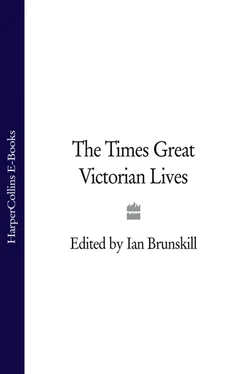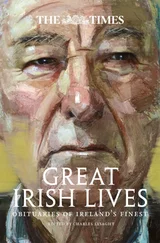Lord Palmerston gained the day, but the seeds of distrust were sown in the Cabinet, and soon bore their fruit. In December, 1851, he was forced to resign, because on his own authority he had pronounced in favour of Louis Napoleon when he assumed the dictatorship of France. It had been arranged that no important step in our foreign affairs should be taken without the assent of the whole Cabinet as well as of the Queen, and Lord Palmerston had – perhaps without knowing it – violated this arrangement, which was a restriction upon his powers. Lord John’s Cabinet, however, did not long survive the dismissal of the Foreign Secretary, who quietly kicked it over on a Militia Bill. Lord Derby’s Government succeeded, when, strangely enough, the Premier offered to Lord Palmerston that very post in the Foreign-office from which he had been dismissed by Lord John Russell, and for his conduct in which the House of Lords had, at the instigation of Lord Derby, passed a vote of censure. Lord Palmerston declined the offer, chiefly on account of the equivocal position which the Tory party maintained on the subject of Free Trade; and the consequence was that the Derby Ministry only held office until the more Liberal statesmen could compose their differences and make up an alliance. An alliance was soon formed under the auspices of Lord Aberdeen, who entered upon office at the head of the strongest Cabinet which has ever controlled the destinies of England. Lord Palmerston consented to serve in the Home-office under his old rival, while to propitiate the Whigs, Lord Clarendon was placed in the Foreign-office. The Russian War was the leading incident of this coalition. It finally broke down in consequence of those Crimean disasters which introduced an element of strife between the Conservatives and Liberal sections of the Ministry. In the meantime Lord Palmerston was plodding at the Home-office as if there were no such thing as foreign politics, and as if smoke nuisances and sewer nuisances were the only great themes of Ministerial anxiety. He dilated upon manure, and informed the world that dirt was only ‘a good thing in the wrong place;’ he discussed the subject of the cholera, and informed the English public that cleanliness is a more certain preventive than prayer. In this last piece of administration it was wittily said that the Foreign Secretary peeped out – he treated Providence as a foreign Power. There were not a few who in those days wished that he were indeed Foreign Secretary, – that he occupied a post which would bring more directly under his control the real work of the Aberdeen Cabinet, either the conduct of our negotiations for peace or the conduct of our military operations; and when he succeeded Lord Aberdeen as Prime Minister he more than justified the public expectation by the vigour which he threw into the war and the tact with which he concluded a peace.
It was certainly a proud day for him when, in answer to the long series of attacks upon him, he was elevated to the highest office in the State, as the only man able and ready to carry out that very policy of a war with Russia and an alliance with the French Emperor, which had been the source of misunderstandings innumerable and recriminations without end. It showed also immense courage on his part that he was willing to undertake this arduous task with the assistance of a Cabinet which Lord Brougham is said to have characterized as ‘a staff of eleventh-rate men.’ He was feebly supported both in administration and in debate; and the effects soon became visible in little incidents which do not come before the public, but which in the undercurrents of the Legislature tell with great force on the credit of a Government. The weakness of some of his colleagues compelled them into occasional discourtesies, which were nothing more than the natural refuge of incapacity, but which left a bad impression on political opponents and wavering allies; and the Prime Minister had so much to do to cover the deficiencies of his Cabinet that he was known to have given offence to certain of the Liberals by the assumed airiness of his manner and the levity of his answers to serious questions, while others reported to his discredit that he, the kind of heart and light of soul – he who had not one particle of bitterness in his nature – he who had been notorious for his good humour under the most trying circumstances – he who had won the hearts of the country gentlemen by refusing to side with the rest of the Liberal party in demanding from them a humiliating confession of the advantages of Free Trade, had on one occasion lost his temper and spoke angrily. The House of Commons was slipping from his grasp, and on the Chinese question he lost his majority. Nor did he recover it without an appeal to the country, from which he received the most enthusiastic support. He returned to Parliament with an enormous increase of power, and it seemed that, spite of the feebleness of his coadjutors, his term of office would be coincident with his life. Unfortunately, the same series of causes which deprived him of his majority in the previous Parliament gradually tended to deprive him of his majority in that which had been newly summoned. On a mere question of form the vote went against him. It is useless to say that there was anything really offensive to the country in his conduct to the French Emperor. The Tories voted in favour of his policy one day and against it the next. When they succeeded to power they but carried out the Palmerstonian policy. There was no real difference between Lords Derby and Palmerston on this question. A slight informality in the mode of conducting our foreign correspondence was seized as a fit opportunity for the annoyance of the Government, and the annoyance proceeded to the extent of placing Lord Palmerston in a minority. A minority in a Parliament summoned to support himself was a serious matter, and he instantly resigned.
Lord Derby, who ruled in his stead, did not long enjoy power. In about a year the whole of the Liberal party combined, agreed to sink their differences, and to cope with the Tories for victory. By a small majority they won, and Lord Palmerston was installed in office. If, however, one inquires why the Whigs again came in, it would be difficult to show any reason, save that of personal confidence in their chief. Nominally, Lord Derby’s Cabinet was ousted because it was not sufficiently reforming, and because its foreign policy was not safe. But the new Government failed to carry a Reform Bill, and the new Secretary for Foreign Affairs distinctly declared after he got into office that his policy did not differ from Lord Malmesbury’s. As far as we can see, the change of Government is to be explained only in one way. The Italian war broke out; there was an uneasy feeling in the country; and politicians of every shade wished to see the reins of Government in the hands of the most able, the most popular, and the most experienced statesman in the land. So Lord Palmerston was again raised to the chief office in the State. His Government carried us through the danger of the Italian war, united us through the treaty of commerce in a closer alliance with France, carried out reforms in India that led to its comparative prosperity, remodelled our bankruptcy law and our educational system, and steered through the difficulties raised by the American war and by the Polish rebellion. Amid these and other perplexities, which are so recent that they will be in everybody’s recollection, it was constantly apparent that nothing but the personal popularity and adroitness of Lord Palmerston saved the Government from going to wreck in the House of Commons. While he sat on the Treasury Bench everything went on smoothly. Whenever an attack of gout compelled him for an instant to leave the guidance of the House of Commons, even to such an accomplished orator as Mr. Gladstone, defeat and disaster were the consequence. Again and again the Government were saved from ruin only by the marvellous popularity and address of its chief, who has been a Prime Minister for a greater number of years than any man in this century, with the exception of Lord Liverpool.
Читать дальше












